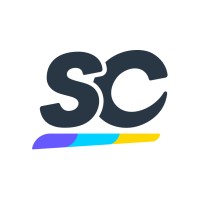“… When you’re a new person in a new environment, you often don’t know what questions to ask. So these checklists, what becomes business processes, they’re a really effective way of passing on knowledge from people who know what to what to ask [and] what to look for. it’s a really effective way of training up the next generation in a given workplace.”
Frontline workers are people who work hard and, oftentimes, heroically. They perform essential services that help society to function. Just as frontline workers support society, they also need support to stay safe at work. James Simpson, CTO of SafetyCulture shares how technology can be individualized so companies can create useful safety processes for their unique industries and workers.
Key Insights
How Do Tools That Personalize Systems Empower Companies? (13:30)
Every business has unique needs. Simpson suggests that SafetyCulture puts a tool in companies’ hands that allows them to make it their own to serve their safety requirements. Today’s business world is a paradox — hyper-specific on one hand yet there are commonalities in given industries and sometimes across industries too. Products that operate within these seeming tensions will have traction.
What Is the Possible Benefit To Integrating Software and Hardware? (05:14)
Simpson describes an example of how the SafetyCulture platform can be used as software that helps a person check to make sure a construction site is safe. For a hardware component, he describes sensors that can provide notice if a refrigerator is not at the correct temperature and how this can save money. It seems companies that integrate hardware and software components are generally able to have more control of their products, and ideally are able to utilize this power to better them.
Does There Have To Be a Compromise Between Increasing Speed and Value?(26:15)
“So I think there are some things you can do to increase velocity, pretty straightforward. And I think there are some things you can do to improve quality, pretty straightforward. It’s hard to do both at the same time. I don’t accept that it’s a direct trade-off. I don’t think it’s always got to be one or the other. I think you have to try for both simultaneously, and I think you can find some things that will give you both. An example would be if you get your quality piece right, you can reduce the amount of bugs and customer problem reports that come through. So, you’re not diverting energy into servicing those.”
How Can a Good Company Culture Entice Potential Employees? (30:42)
“So, focusing on the quality of environment and the quality of career progression and those sorts of things is where we turn most of our attention. People don’t always think of it as a recruiting step, but I think it is. I think it actually makes a huge difference. So I think that’s the best place to start because it looks after the people you already have. It makes things as satisfying and rewarding for them as you can get it. And people hear about that word of mouth. People hear about it and people are drawn to you.”
About the Guest:
“An Executive CTO/CPO, my ambition is to create new products and services in high growth markets.
Gaining leadership strength from a diverse career across the industry spectrum, I have moved between start-up and corporate leadership roles. I’ve consulted for Accenture, built an R&D facility for Microsoft and built profitable CRM/ERP sales unit for Microsoft, and been a hands-on protagonist in the development of product roadmaps that have delivered growth for a range of organisations. The variety of challenge [sic] I have experienced allows me to bring both positives and lessons learned to my role as a CTO to increase revenue, profit and market share. What unites my experience is a love for software/product development, and a drive to deliver meaningful impact.
As a leader, I value accountability, positivity and a sense of humour, and strive to develop productive workplaces that are fuelled by laughter. After more than two decades in the sector, I still find technology exciting, and bring this enthusiasm to propel results delivery. Equally, I enjoy the commerciality of business planning and process, defining marketing, sales and operational strategies that maximise profit while enabling scalability. I like joining the concerns of the business with those of technology, creating an end-to-end path that serves the organisation.”
IT Visionaries is brought to you by The Salesforce Platform. If you love the thought leadership on this podcast, Salesforce has even more meaty IT thoughts to chew on. Take your company to the next level with in-depth research and trends right in your inbox. Subscribe to a newsletter tailored to your role at Salesforce.com/newsletter.
Mission.org is a media studio producing content for world-class clients. Learn more at mission.org.





